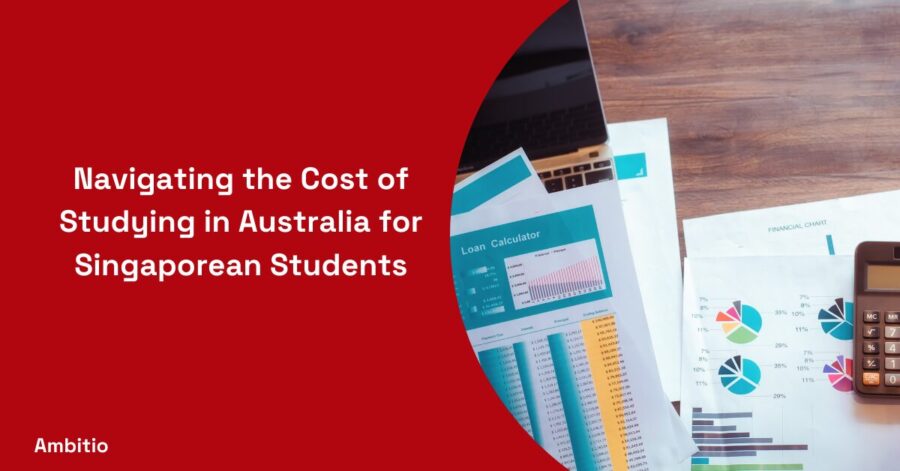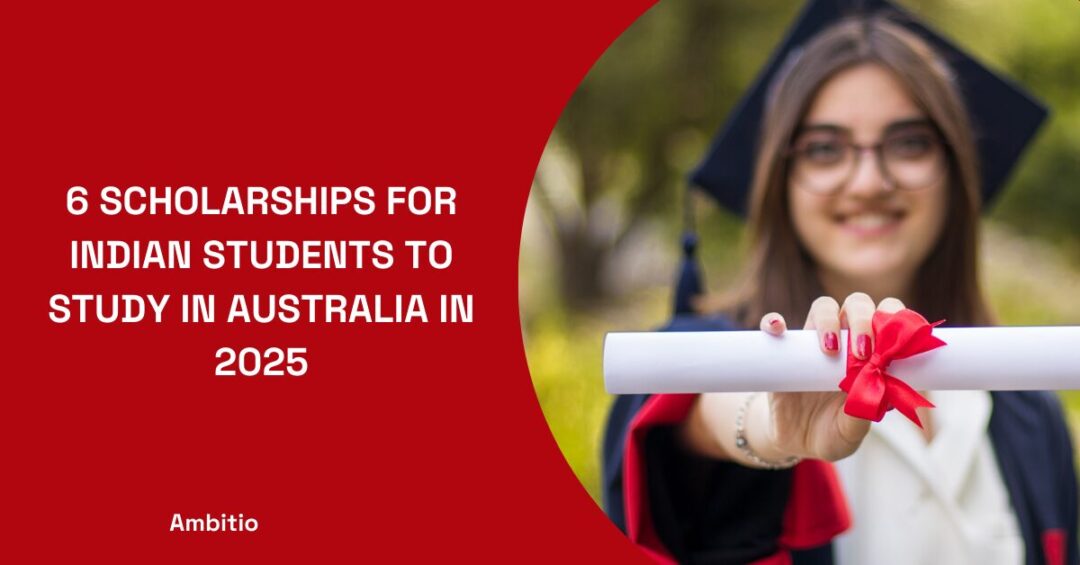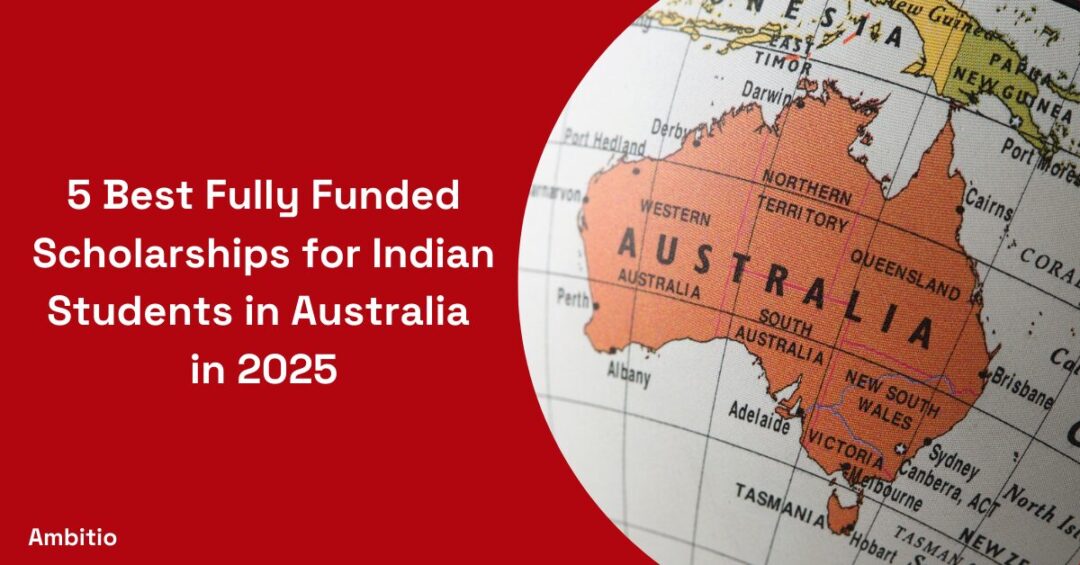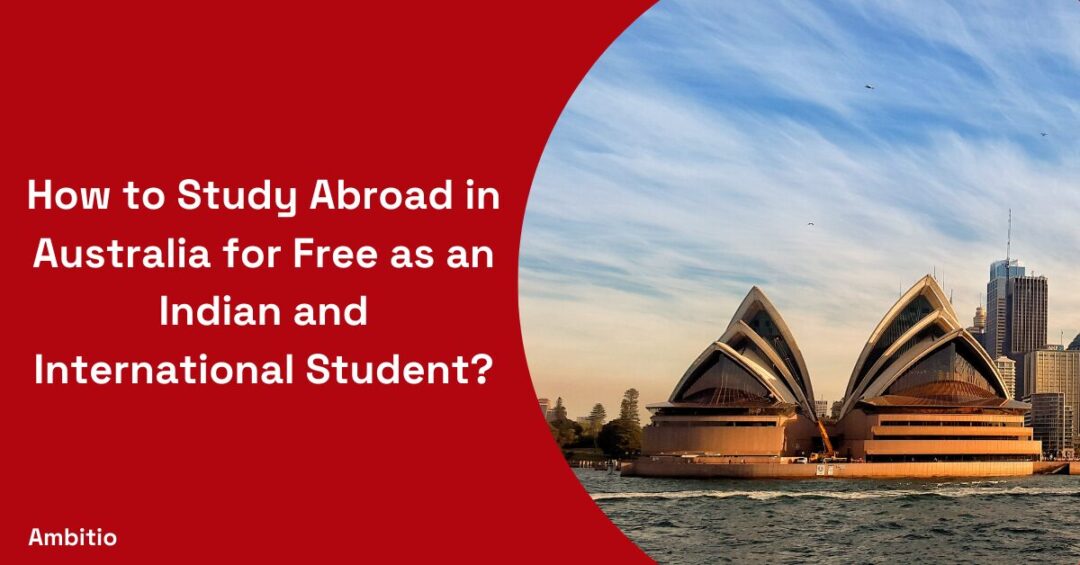12 December 2024
6 minutes read
Navigating the Cost of Studying in Australia for Singaporean Students

Australia, with its high-quality education system and diverse cultural landscape, has become a hub for international students, particularly those from Singapore.
This comprehensive guide aims to break down the various costs associated with studying in Australia, offering insights into tuition fees, living expenses, visa processes, and more.
Understanding Tuition Fees at Australian Universities
Tuition fees are a primary consideration for Singaporean students planning to study in Australia. These fees can vary significantly based on factors like the choice of university, the field of study, and the level of education (undergraduate, postgraduate, or doctoral).
Breakdown of Tuition Fees by Course and University
The tuition fees in Australian universities can range broadly. For instance, an undergraduate arts program may cost around AUD 20,000 to AUD 30,000 per year, while a postgraduate law or medical course could exceed AUD 40,000 per year.
This section will delve into the fee structures of popular courses at renowned universities like the University of Melbourne, Australian National University, and others.
Comparison with Singaporean Universities
Comparatively, tuition fees in Singapore, for example at the National University of Singapore or Nanyang Technological University, might be lower for local students due to government subsidies.
However, the international exposure and specialized courses offered in Australia often justify the higher cost for many students.
Analyzing the Living Expenses in Australia
Living expenses in Australia encompass accommodation, food, transportation, and other personal costs. These can vary based on the city and lifestyle choices.
Accommodation Options and Costs
Accommodation forms a significant part of living expenses. This section will compare the costs of different housing options like university dormitories, private rentals, and homestays in major cities like Sydney, Melbourne, and Brisbane.
Daily Living Costs and Budget Management
Besides housing, daily expenses such as food, transportation, and entertainment contribute to the overall cost of living. We’ll explore budgeting tips and how to manage these expenses effectively while enjoying the Australian lifestyle.
Navigating Visa Requirements and Costs
Obtaining a student visa (subclass 500) is essential for Singaporean students. This section covers the application process, associated fees, and financial requirements.
Step-by-Step Visa Application Process
Applying for a student visa (subclass 500) is an essential step for Singaporean students planning to study in Australia. The process may seem daunting, but by following these steps, you can navigate it smoothly.
- Confirm Your Admission and Course Details: Before starting your visa application, ensure you have received a Confirmation of Enrolment (CoE) from an Australian university. This document is necessary for the visa application and proves that you have been accepted into a full-time study program.
- Create an ImmiAccount: The first step in the application process is to create an ImmiAccount on the official website of the Australian Department of Home Affairs. This online account will be your primary platform for lodging and managing your visa application.
- Gather Necessary Documents: Prepare all required documents, including your passport, Confirmation of Enrolment (CoE), Overseas Student Health Cover (OSHC), evidence of sufficient funds, English proficiency test results (like IELTS or TOEFL), and criminal record checks.
Additionally, you may need to provide a Genuine Temporary Entrant (GTE) statement, which demonstrates your intention to return to Singapore after your studies. - Fill Out the Visa Application Form: Log into your ImmiAccount and complete the visa application form (Form 157A). Ensure all the information provided is accurate and consistent with the details in your other documents.
- Pay the Visa Application Fee: Upon submitting the application form, you will be required to pay the visa application fee. This fee is non-refundable and can be paid using a credit card through your ImmiAccount. Keep the receipt of payment, as it is required for future reference.
- Health Checkup and Biometrics: Depending on your circumstances, you might be asked to undergo a health examination and provide biometric information. If required, you will receive a referral letter with instructions on how to proceed.
- Attend an Interview (If Required): In some cases, you may be asked to attend an interview at the Australian embassy or consulate. This is not always necessary but be prepared in case it is requested.
- Track Your Application: After submitting your application, you can track its progress through your ImmiAccount. Processing times can vary, so it’s important to apply well in advance of your intended travel date.
- Visa Outcome: You will receive the outcome of your visa application via email. If your visa is granted, it will detail your visa grant number, the start date of your visa, and its conditions. Ensure to read and understand all the conditions applied to your visa.
- Plan Your Travel: Once your visa is granted, you can start planning your travel to Australia. Remember, you are typically not allowed to enter Australia before your course’s commencement date.
- Keep Documents Handy: When traveling to Australia, have all your essential documents, including your visa grant notice, CoE, and proof of OSHC, handy as you might need to present them at immigration control in Australia.
By carefully following these steps and preparing well in advance, Singaporean students can ensure a smooth visa application process, paving the way for their educational journey in Australia.
Financial Proof for Visa and Scholarships
We’ll also discuss the financial proof required for the visa application and explore scholarship opportunities that can help offset some of these costs.
The Australian Education System and International Students
Australia’s education system offers a diverse range of courses and a robust support system for international students.
Academic Culture and Support Services in Australian Universities
This section will highlight the academic culture in Australian universities, focusing on teaching methods, assessment criteria, and the support services available for international students, including academic counseling and language assistance.
Opportunities for Practical Experience and Internships
Many Australian courses offer practical work experience and internship opportunities. We’ll explore how these opportunities not only enrich the educational experience but also improve employability post-graduation.
Work Opportunities for Students in Australia
For Singaporean students in Australia, part-time work can be an essential aspect of the study experience. It not only helps in managing living expenses but also provides valuable work experience.
Here are some key points regarding work opportunities for students in Australia:
- Legal Work Limitations: International students on a student visa in Australia are typically allowed to work up to 40 hours per fortnight during the semester and full-time during university breaks. It’s crucial to adhere to these work restrictions to maintain visa compliance.
- Types of Part-Time Jobs: Common part-time jobs for students include roles in hospitality (like cafes, restaurants, and bars), retail, tutoring, administrative positions, or jobs related to their field of study. These roles often offer flexible hours that can be balanced with university schedules.
- Finding Work: Jobs can be found through university job boards, online job portals like Seek or Indeed, community notice boards, and through networking. Many universities also have career support services that help students find part-time work.
- Minimum Wage Regulations: Australia has strict minimum wage laws. As of 2023, the national minimum wage is AUD 20.33 per hour. Students should ensure they are being paid fairly and understand their work rights in Australia.
- Impact on Studies: While working part-time can be beneficial, it’s important to balance work commitments with academic responsibilities. Time management and prioritizing studies are essential to ensure that work does not negatively impact academic performance.
- Work Experience in Related Fields: Students in certain disciplines may find part-time work or internships relevant to their field of study. This experience can be invaluable, providing a deeper understanding of the field and enhancing employability post-graduation.
- Tax and Superannuation: Working students in Australia are required to apply for a Tax File Number (TFN) and will have to file a tax return if they earn above the tax-free threshold. Additionally, employers may contribute to a superannuation (retirement savings) fund on behalf of the student.
- Networking Opportunities: Part-time work provides an excellent opportunity for international students to network, meet new people, and improve their English language skills. These connections can be beneficial both professionally and personally.
- Rights and Protections: International students in Australia are protected by the same labor laws as Australian residents. This includes rights related to fair pay, work conditions, and workplace safety. Students should be aware of their rights and seek support if they face any issues at work.
Understanding and utilizing the work opportunities available can significantly enhance the study experience in Australia for Singaporean students, offering financial support and valuable real-world experience.
Social and Cultural Experiences in Australia for Singaporean Students
Studying in Australia is not just about academics and expenses; it’s also about the social and cultural experiences.
Embracing Australian Culture and Building a Social Network
This part will discuss how Singaporean students can immerse themselves in Australian culture, build networks, and make the most of their international study experience.
Coping with Homesickness and Cultural Differences
Practical advice on coping with homesickness and adjusting to cultural differences will be offered, helping students to make a smooth transition to life in Australia.
Preparing for the Return to Singapore Post-Study
Many students return to Singapore after their studies, making it crucial to understand how to transition back effectively.
Transferring Australian Qualifications to the Singaporean Job Market
This section will explore how to leverage Australian qualifications in the Singaporean job market, including tips on highlighting international experience during job searches.
Staying Connected with Alumni Networks
Finally, we’ll discuss the importance of staying connected with alumni networks and how these connections can provide ongoing career support and opportunities.
Conclusion
In conclusion, studying in Australia for Singaporean students is an investment that goes beyond financial considerations. It encompasses educational excellence, cultural exposure, personal development, and long-term career benefits.
With the right planning and resources, this experience can be both enriching and rewarding.
FAQs
What is the average cost of tuition for international students in Australia?
The average tuition cost varies but generally ranges from AUD 20,000 to AUD 45,000 per year, depending on the course and university.
How much should Singaporean students budget for living expenses in Australia?
On average, students should budget between AUD 1,400 to AUD 2,500 per month for living expenses, including accommodation, food, and transportation.
Is a student visa mandatory for Singaporean students studying in Australia?
Yes, Singaporean students must obtain a student visa (subclass 500) to study in Australia.
How does the cost of studying in Australia compare to that in Singapore?
Generally, the cost of studying in Australia can be higher, especially when factoring in living expenses. However, this can vary based on the choice of city and lifestyle.
Are there scholarships available for Singaporean students in Australian universities?
Generally, the cost of studying in Australia can be higher, especially when factoring in living expenses. However, this can vary based on the choice of city and lifestyle.

You can study at top universities worldwide!
Get expert tips and tricks to get into top universities with a free expert session.
Book Your Free 30-Minute Session Now! Book a call now




























